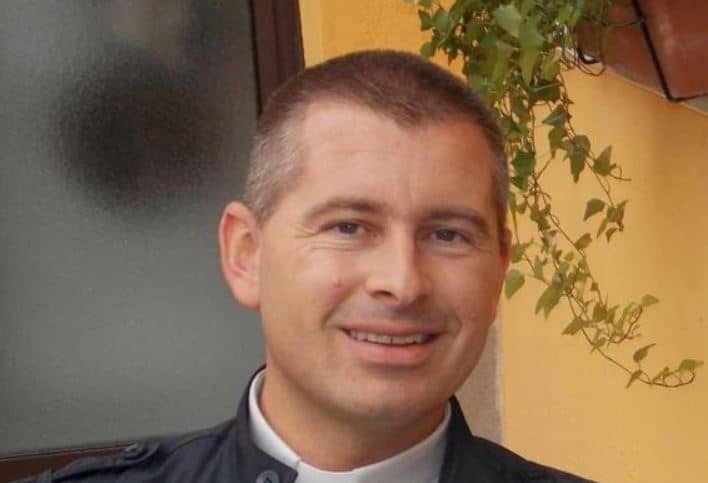ROME – More than a year after the head of a lay movement in southern Italy was accused of sexually abusing underage girls, the local diocese has not exercised any new form of oversight and has suspended a trial against one of its priests who allegedly broke the confessional seal to inform the group’s leaders of a police investigation.
“From the Church and from the Diocese of Acireale I haven’t even heard a ‘how are you?’ Total silence,” said the mother of one of the victims, who wishes to remain anonymous to protect her daughter’s identity, in a phone interview with Crux Oct. 31.
“It’s as if I didn’t exist,” she said, “as if my daughter and the other girls who were abused were nonexistent.”
In August 2017, Piero Alfio Capuana, 75, was taken into custody after a police investigation found credible proof that he had abused at least six underage girls who were members of his lay group, the “Catholic Culture and Environment Association” or ACCA, headquartered in the town of Acireale, near Catania, in Sicily.
Soon after, the Diocese of Acireale released a statement keeping its distance from the lay association and creating a commission to look into the accusation that one of its priests, Father Orazio Caputo, who worked closely with ACCA, told leaders of the group about the police investigation based on information he obtained under the seal of confession.
Since then, no trial or response has been made even though the mother of the victim personally delivered a letter (seen by Crux) documenting how, when and where the confession took place and presenting witnesses.
“Their behavior is incomprehensible,” the mother said, “too much time has been lost.”
Last week, she said, a priest from the diocese called her to inform her that an ecclesiastical trial was soon going to take place, but less than an hour later he informed her that it was to be postponed with no explanation.
“There is complete disinterest for the faith and the faithful,” the mother said, adding that she and her daughter have both lost their belief in the Catholic Church because of what has happened.
“They are not close to us, we feel completely abandoned,” she added.
Speaking to Italian television, the Bishop of Acireale, Antonino Raspanti, reinforced that ACCA is not tied to the diocese and they have no power to oversee what happens in the group.
Capuana, who was called the “Archangel” by ACCA members, and his three so-called “Apostles” who allegedly encouraged under-age girls to see sexual abuse as “love from above,” Fabiola Raciti, Rosaria Giuffridda and Katia Scarpignato, were released from prison in early August.
All have strongly denied the claims against them and are awaiting trial.
Since their return to Motta Sant’Anastasia, not very far from the headquarters of the association, ACCA has reformed and started posting on Facebook the works of charity they have initiated in collaboration with the religious sisters of St. Teresa of Calcutta.
Speaking to Italian newspaper Catania Today, Enzo Tarantino, a current member of ACCA, emphasized that “our association has nothing to do with the so-called 12 Apostles, we are completely separate.”
At the same time, he also defended Giuffridda, who was Capuana’s right hand in terms of organizing the association, stating that from her he “only witnessed commitment, dedication and love toward helping others and combating poverty.”
“We haven’t seen anything else, only exemplary behavior on her part,” he added.
According to the mother of the victim, about 300 people have returned to ACCA with an effort to change its public image though Facebook posts and interviews with local media presenting the positive aspects of the group.
“Our indignation is great, we are angry toward those who said defaming things about us,” said Tarantino. “But we are Catholics first and foremost, and we continue in our activities even if we are targeted.”
“Our work continues, because when you believe in certain values that have a correspondence with God, it’s not possible to close shop,” he added.
It’s unclear at this stage how much Capuana and his three accomplices play a part in the organization, though the local diocese is not exercising any apparent vigilance over the “Catholic Association,” which has been working in collaboration with religious orders in the territory.
Canon lawyers told Crux that the Code of Canon Law may not allow the diocese to “simply wash its hands.”
According to Canon 305, “All associations of the Christian faithful are subject to the vigilance of competent ecclesiastical authority,” which must ensure “the integrity of faith and morals” and “watch so that abuse does not creep into ecclesiastical discipline.”
In the more than 45 years since its founding, ACCA has benefited from confessors sent by the diocese and visits by the sitting bishops. Despite an attempt in the early 1970s to exercise control over the association, following the first signs of issues with its leader, no visible supervision has been attempted.
“They are free to do as they please,” said the mother, who lives close to the headquarters of the group known as the ‘Cenacle,’ “there is no supervision by the diocese.”
According to her, ACCA “is always dangerous, even though they are cleaning up their act,” because members who were “aware” of the happenings within the group still play a part in its organization.
“I wish for the association to be purged of the evil people, and filled with good people,” she added.
At this stage, no date has been set for the criminal trial against Capuana and his accomplices.
Meanwhile, the Italian Bishops’ Conference is preparing to issue in November new guidelines, at Pope Francis’s request, on the prevention of sexual abuse and its cover-up.


















